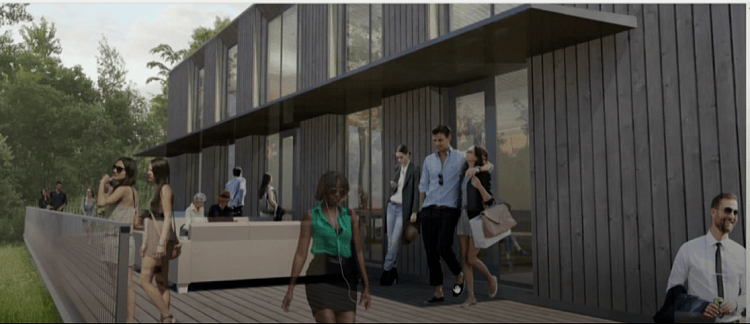Maine’s First Recreational Marijuana Store Getting Closer … But Could Old Graves Get in the Way?

The planning board in the city of South Portland has approved a site plan for what would be Maine's first recreational marijuana store, but the possible presence of historic graves may complicate the process.
Meanwhile, applicant Scott Howard, owner of the aptly named SeaWeed Company, is looking forward not only to selling marijuana but also to possible expanded uses, designing what one planning board member called a nice spot for "a beautiful restaurant."
